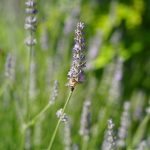Mosquitoes present a significant threat to chicken health and well-being as vectors of various diseases. Avian malaria, transmitted by mosquitoes, can cause anemia, weakness, and mortality in chickens. Other mosquito-borne diseases affecting chickens include fowlpox, avian encephalitis, and West Nile virus, all of which can have severe consequences for flocks.
Chicken owners must understand these risks to implement effective preventive measures. Beyond disease transmission, mosquitoes can cause stress and discomfort to chickens through persistent biting and blood-feeding. This harassment can result in reduced egg production, weight loss, and overall decreased flock productivity.
In extreme cases, heavy mosquito infestations may contribute to increased chicken mortality rates. Given these potential impacts, it is crucial for chicken keepers to recognize the risks posed by mosquitoes and take appropriate action to protect their birds.
Table of Contents
- 1 Creating a Mosquito-Repellent Environment for Chickens
- 2 Using Natural Remedies to Keep Mosquitoes Away from Chickens
- 3 Implementing Physical Barriers to Protect Chickens from Mosquitoes
- 4 Maintaining Cleanliness and Hygiene to Prevent Mosquito Infestation
- 5 Providing Proper Nutrition to Boost Chickens’ Immune Systems against Mosquito-Borne Diseases
- 6 Seeking Veterinary Advice for Effective Mosquito Control for Chickens
- 7 FAQs
- 7.1 What are the risks of mosquitoes on chickens?
- 7.2 How can I keep mosquitoes off my chickens?
- 7.3 Are there any natural remedies to keep mosquitoes off chickens?
- 7.4 Can I use chemical insecticides to keep mosquitoes off chickens?
- 7.5 How often should I check for standing water around the coop to prevent mosquitoes?
Key Takeaways
- Mosquitoes pose a significant risk to chickens as they can transmit diseases such as West Nile virus and avian malaria.
- Creating a mosquito-repellent environment for chickens involves eliminating standing water, using mosquito nets, and planting mosquito-repelling plants.
- Natural remedies such as citronella, neem oil, and garlic can be used to keep mosquitoes away from chickens.
- Implementing physical barriers like screens, fences, and coop covers can protect chickens from mosquito bites.
- Maintaining cleanliness and hygiene in the coop and surrounding areas is crucial for preventing mosquito infestation.
- Providing proper nutrition, including supplements like garlic and apple cider vinegar, can boost chickens’ immune systems against mosquito-borne diseases.
- Seeking veterinary advice is essential for effective mosquito control for chickens, as they can recommend safe and appropriate insecticides and repellents.
Creating a Mosquito-Repellent Environment for Chickens
Eliminate Standing Water Sources
Mosquitoes breed in stagnant water, so it’s essential to remove any sources of standing water around the coop and run. This can be achieved by regularly emptying and cleaning water containers, fixing any leaks or drainage issues, and ensuring that the area is well-drained to prevent water accumulation.
Use Natural Mosquito Repellents
In addition to eliminating standing water sources, using natural mosquito repellents can help deter mosquitoes from the area. Citronella candles, essential oils, and herbal plants like lavender and mint are all effective natural repellents that can be used around the coop and run.
Prevent Mosquito Entry
Installing mosquito netting or screens on windows and vents can help prevent mosquitoes from entering the coop while still allowing for proper ventilation. By taking these steps, you can create a mosquito-repellent environment that reduces the risk of mosquito-borne diseases and discomfort for your chickens.
Using Natural Remedies to Keep Mosquitoes Away from Chickens

In addition to creating a mosquito-repellent environment, using natural remedies can be an effective way to keep mosquitoes away from chickens. One natural remedy is to plant mosquito-repelling herbs and plants such as citronella, lemongrass, basil, and marigold around the chicken coop and run. These plants emit fragrances that repel mosquitoes and can help create a natural barrier against these insects.
Additionally, using essential oils such as eucalyptus, lavender, and peppermint in diffusers or sprays around the coop can also help deter mosquitoes from the area. Another natural remedy to keep mosquitoes away from chickens is to use garlic as a dietary supplement for the birds. Adding crushed garlic to their feed or providing them with garlic-infused water can help repel mosquitoes due to the odor excreted through the chickens’ skin and breath.
Furthermore, using apple cider vinegar in the chickens’ drinking water can also help make them less attractive to mosquitoes due to the change in their body odor. By incorporating these natural remedies into their chicken care routine, owners can effectively keep mosquitoes away from their birds and reduce the risk of mosquito-borne diseases.
Implementing Physical Barriers to Protect Chickens from Mosquitoes
Implementing physical barriers is another important aspect of protecting chickens from mosquitoes and reducing their exposure to these harmful insects. One effective physical barrier is to install fine mesh screens on windows, doors, and vents of the chicken coop to prevent mosquitoes from entering the living space of the birds. This allows for proper ventilation while keeping mosquitoes out and creating a safe and comfortable environment for the chickens.
Additionally, using mosquito netting or mesh around the outdoor run can help create a barrier against mosquitoes while still allowing the chickens to roam freely. Another physical barrier that can be implemented is the use of mosquito-proof fencing around the chicken coop and run. This can help prevent mosquitoes from entering the area and reduce the risk of infestation.
Additionally, using mosquito traps or zappers around the perimeter of the coop can help reduce the overall mosquito population in the vicinity of the chickens. By implementing physical barriers, chicken owners can effectively protect their birds from mosquitoes and minimize their exposure to potential diseases transmitted by these insects.
Maintaining Cleanliness and Hygiene to Prevent Mosquito Infestation
Maintaining cleanliness and hygiene in and around the chicken coop is essential in preventing mosquito infestation and reducing the risk of mosquito-borne diseases for chickens. Regularly cleaning and removing any debris, standing water, or organic matter around the coop and run can help eliminate potential breeding grounds for mosquitoes. This includes cleaning up spilled feed, removing wet bedding, and keeping the area well-maintained to prevent water accumulation.
Additionally, regularly mowing the grass and trimming vegetation around the coop can help reduce hiding spots for mosquitoes and other insects. Furthermore, practicing good manure management is crucial in preventing mosquito infestation as manure can attract these insects. Properly composting or disposing of manure away from the chicken living area can help reduce the presence of mosquitoes and minimize their breeding sites.
Additionally, using natural predators such as dragonflies or introducing mosquito-eating fish in nearby water sources can help control mosquito populations in the vicinity of the chickens. By maintaining cleanliness and hygiene, chicken owners can effectively prevent mosquito infestation and create a healthier environment for their birds.
Providing Proper Nutrition to Boost Chickens’ Immune Systems against Mosquito-Borne Diseases

Nutrition for Immune Function
A well-balanced diet rich in essential nutrients such as vitamins, minerals, and protein is crucial in supporting the chickens’ immune function and helping them fight off potential infections. Additionally, incorporating immune-boosting supplements such as probiotics, garlic, and herbal remedies into their diet can help strengthen their immune systems against mosquito-borne diseases.
Hydration and Access to Fresh Foods
Furthermore, ensuring access to clean drinking water at all times is important in maintaining proper hydration and supporting overall health in chickens. Dehydration can weaken the immune system and make chickens more susceptible to diseases transmitted by mosquitoes. Additionally, providing access to fresh greens, fruits, and vegetables can help boost their immune function and provide additional nutrients that support their overall well-being.
Boosting Immunity through Nutrition
By providing proper nutrition, chicken owners can help boost their birds’ immune systems against mosquito-borne diseases and reduce their susceptibility to infections.
Seeking Veterinary Advice for Effective Mosquito Control for Chickens
Seeking veterinary advice is crucial in implementing effective mosquito control measures for chickens and ensuring their health and well-being. Veterinarians can provide valuable guidance on preventive measures such as vaccination against specific mosquito-borne diseases that are prevalent in the area. Additionally, they can recommend safe and effective insecticides or repellents that can be used around the chicken coop and run to control mosquito populations without harming the birds.
Furthermore, veterinarians can conduct regular health checks on the chickens to monitor for any signs of mosquito-borne diseases and provide prompt treatment if necessary. They can also offer advice on proper hygiene practices, nutrition, and environmental management that can help reduce the risk of mosquito infestation and disease transmission among chickens. By seeking veterinary advice, chicken owners can ensure that they are taking proactive measures to protect their birds from mosquitoes and minimize the potential risks associated with these harmful insects.
In conclusion, understanding the risks of mosquitoes for chickens is crucial in taking proactive measures to protect them from potential harm. Creating a mosquito-repellent environment, using natural remedies, implementing physical barriers, maintaining cleanliness and hygiene, providing proper nutrition, and seeking veterinary advice are all important aspects of effective mosquito control for chickens. By incorporating these measures into their chicken care routine, owners can create a safer and healthier environment for their birds while minimizing the risks associated with mosquito-borne diseases.
If you’re looking for ways to keep mosquitoes off your chickens, you may also be interested in learning about the importance of a heater for a chicken coop. A good heater can help keep your chickens warm and comfortable, while also helping to keep mosquitoes at bay. Check out this article for more information on how to choose the right heater for your chicken coop.
FAQs
What are the risks of mosquitoes on chickens?
Mosquitoes can transmit diseases such as West Nile virus and avian malaria to chickens, which can lead to illness and even death.
How can I keep mosquitoes off my chickens?
You can keep mosquitoes off your chickens by using mosquito netting or screens on coop windows, using mosquito-repelling plants around the coop, and eliminating standing water where mosquitoes breed.
Are there any natural remedies to keep mosquitoes off chickens?
Yes, natural remedies such as using essential oils like citronella, lavender, and eucalyptus can help repel mosquitoes from chickens. Additionally, introducing mosquito-eating fish to water sources can help control mosquito populations.
Can I use chemical insecticides to keep mosquitoes off chickens?
It is not recommended to use chemical insecticides directly on chickens, as they can be harmful to the birds. Instead, focus on environmental modifications and natural remedies to keep mosquitoes at bay.
How often should I check for standing water around the coop to prevent mosquitoes?
It is recommended to check for and eliminate standing water around the coop at least once a week, as mosquitoes can breed in even small amounts of water. Regular maintenance can help prevent mosquito infestations.
Meet Walter, the feathered-friend fanatic of Florida! Nestled in the sunshine state, Walter struts through life with his feathered companions, clucking his way to happiness. With a coop that’s fancier than a five-star hotel, he’s the Don Juan of the chicken world. When he’s not teaching his hens to do the cha-cha, you’ll find him in a heated debate with his prized rooster, Sir Clucks-a-Lot. Walter’s poultry passion is no yolk; he’s the sunny-side-up guy you never knew you needed in your flock of friends!







